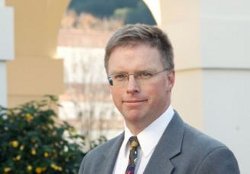- Home
-
About
 Fidelity & Excellence
Fidelity & ExcellenceThomas Aquinas College is unique among American colleges and universities, offering a faithfully Catholic education comprised entirely of the Great Books and classroom discussions.
-
A Liberating Education
 Truth Matters
Truth MattersTruth, and nothing less, sets men free; and because truth is both natural and supernatural, the College’s curriculum aims at both natural and divine wisdom.
-
A Catholic Life
 Under the Light of Faith
Under the Light of FaithThe intellectual tradition and moral teachings of the Catholic Church infuse the whole life of Thomas Aquinas College, illuminating the curriculum and the community alike.
-
Admission & Aid
 Is TAC Right for You?
Is TAC Right for You?Do you enjoy grappling with complex questions? Are you willing to engage in discussions about difficult concepts, with the truth as your ultimate goal?
-
Students & Parents
 Mind, Body & Spirit
Mind, Body & SpiritThere is always something to do at TAC — something worthwhile, something fulfilling, and something geared toward ever-greater spiritual and intellectual growth.
-
Alumni & Careers
 What Can You Do with a Liberal Education?
What Can You Do with a Liberal Education?Nothing speaks more to the versatility of the College’s academic program than the good that our alumni are doing throughout the Church and the world.
- Search
- Giving
Dr. Andrew Seeley (’87) Critiques “Common Core”
So asks Dr. Andrew Seeley (’87), the executive director of the Institute for Catholic Liberal Education and a tutor at the College. His question comes in response to much of the language used to promote the “Common Core,” which is similar, in many respects, to that of advocates of classical liberal education. Both, after all, stress critical thinking over crude regurgitation; both emphasize developing a keenness of mind over attaining specific job skills; and both value the role of literature as a pedagogical tool.
Sadly, Dr. Seeley observes, that is where the similarities end.
Writing for the Cardinal Newman Society about the Common Core State Standards Initiative for English Language Arts and Literacy, Dr. Seeley finds that Common Core is far from the fulfillment of Catholic liberal education. Yes, it encourages critical thinking — but at too early an age, before students have been adequately prepared. It may not be narrowly tailored toward developing specific job skills, but it still aims merely at preparing students for the workplace, rather than educating the whole person. And while the Common Core does, commendably, emphasize literature, it does so without a commitment to the pursuit of truth — a deficiency, says Dr. Seeley, that will ultimately foster rootlessness and relativism.
The Common Core is not the secular world’s embrace of the ideals and methods of Catholic liberal education, Dr. Seeley concludes, and Catholic educators would be wise to steer clear of its false promises:
“The Common Core State Standards Initiative intends to form literate, thoughtful, critical readers capable of understanding and judging the best literature and the richest informational literature. But not only are its goals limited — even subversive with respect to a Catholic education — it represents a massive educational project that has not been tried. Catholic classical educators have now more than three decades of experience and over two thousand years of expertise to draw on. Now is not the time to submit children enrolled in any Catholic school to untested, yet no doubt very constraining, shackles.…
“By contrast, time-tested classical approach engages children to discover the truth of reality, both visible and invisible. This is active learning, not passive learning. It cultivates habits of mind that allow the human person to discern what is true, good and beautiful, to glimpse the transcendent. It awakens the soul.”
Notably, Thomas Aquinas College President Michael F. McLean and Dean Brian T. Kelly (’88) have arrived at similar conclusions about the Common Core. In November, the two educators signed a letter to each of the nation’s Catholic bishops urging dioceses to reject the use of the “Common Core” curriculum in their schools.


